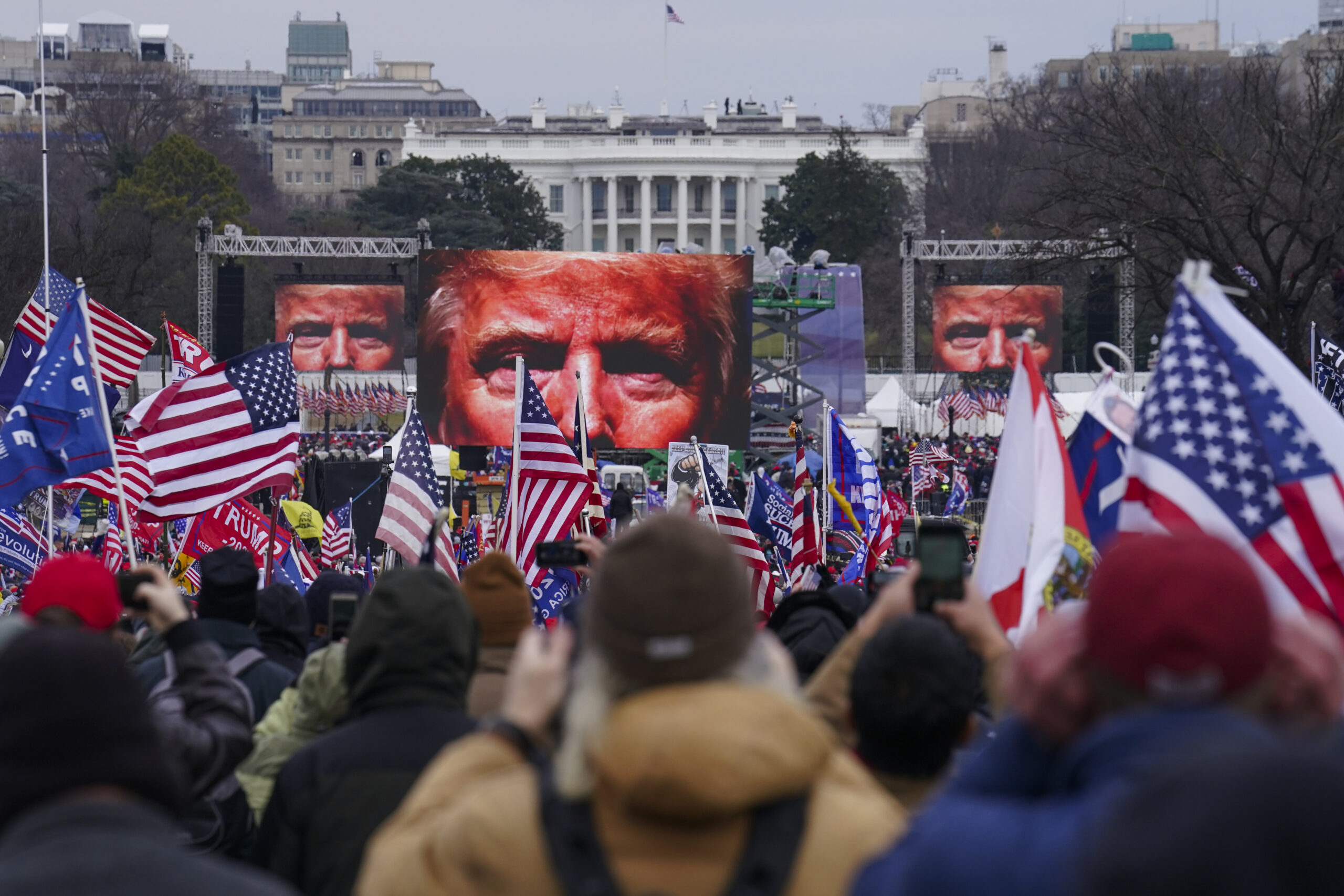Former President Donald Trump can be held civilly liable for the actions of the mob that rioted at the Capitol on Jan. 6, 2021, a federal appeals court ruled Friday.
The unanimous decision by a three-judge panel on the federal appeals court in Washington, D.C., is likely to be appealed and stems from lawsuits filed against Trump in 2021 by two U.S. Capitol Police officers and several Democratic lawmakers who alleged he instigated violence by telling his supporters that the election was stolen.
DID JACK SMITH’S SEARCH WARRANT SWEEP TWITTER DATA FROM MILLIONS OF AMERICANS?

Judges on the panel came to the conclusion that Trump’s post-election efforts to overturn his defeat against Joe Biden, who became president-elect after Nov. 7, were done in Trump’s own capacity as a presidential candidate, not as president.
“When a first-term President opts to seek a second term, his campaign to win re-election is not an official presidential act,” Chief Judge Sri Srinivasan of the U.S. Court of Appeals for the District of Columbia wrote in a 67-page opinion.
Srinivasan, an appointee of former President Barack Obama, was joined on the opinion by U.S. Circuit Judges Gregory Katsas, an appointee of Trump, and Judith Rogers, a Bill Clinton appointee.
The ruling could have major implications for some of Trump’s criminal cases. Nevertheless, the former president has the ability to appeal the ruling to the full Court of Appeals or all the way to the Supreme Court if necessary.
U.S. District Judge Amit Mehta had, in February 2022, denied Trump’s motion to dismiss the three lawsuits relevant to the Friday ruling, denying Trump’s immunity claims.
“After careful consideration, the court concludes that, on the facts alleged, absolute immunity does not shield President Trump from suit,” Mehta wrote last year.
Trump’s lawyers filed an appeal in August 2022 with the Court of Appeals, arguing a lower court “erred when it held that President Trump’s speech on matters of public concern was not within the scope of his absolute presidential immunity.” But the panel said Friday that Trump’s immunity arguments were unpersuasive.
However, the ruling is not a straight win for plaintiffs suing Trump, and the panel said that its decision left key items unresolved, including whether Trump’s 75-minute speech, which hadn’t finished by the time the Capitol riot began, was protected by the First Amendment.
While the panel’s decision allows the lawsuit to move forward, the judges said Trump can nevertheless seek to show he was acting in his official capacity as president when he told the crowd on Jan. 6, 2021, to march to the Capitol to “fight like hell” to stop Biden’s victory, when he also called on protesters to march “peacefully.”
Katsas filed a concurring opinion that found that while speeches at political events are “normally” unofficial, there could be rare circumstances in which comments made at such events are immune from lawsuits. He referenced President George W. Bush’s first public response to the Sept. 11, 2001, terrorist attacks as he was reading a book at an elementary school.
“Had that event been a political rather than an official event, and had the President immediately responded with an off-the-cuff statement to rally or console the Nation, I have little doubt that the response would have been official,” the judge wrote.
Rogers disagreed with the other panelists, arguing Trump should not have the ability to continue making the case that his speech before the riot was an official act as president.
CLICK HERE TO READ MORE FROM THE WASHINGTON EXAMINER
“Under the circumstances, it is unnecessary to inquire into the President’s motives in order to conclude that his actions did not constitute an official function of his office,” Rogers wrote. “The record suggests no reason for this court to direct the order of the district court’s proceedings on remand.”
The Washington Examiner contacted an attorney for Trump.

